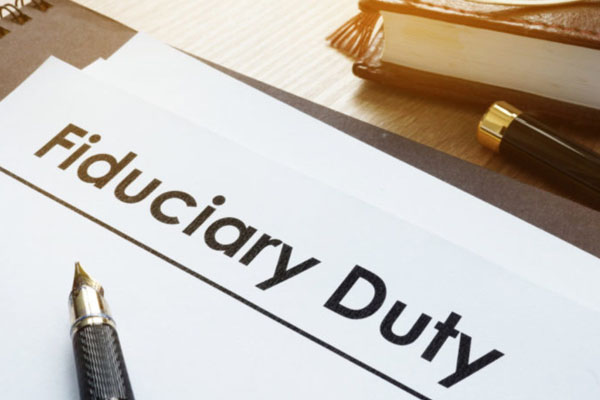You’ve probably heard about stock options and RSU, but what are they really, and is it better to take RSU or stock options? Today, Aaron Rubin from WRP Wealth Management, does a deep dive into the matter. Aaron specializes in financial, estate, and tax planning and helps clients make tax-savvy, financially sound decisions about their stock compensation packages. Tune in to learn more about maximizing your RSU or stock options, tax strategies, wealth management, and estate planning.
Watch the episode here
Listen to the podcast here
Maximizing Your RSU Stock Options, Wealth Management And Estate Planning With Aaron Rubin
In this episode, we are sitting down with Aaron Rubin, who is specialized in financial estate and tax planning at WRP Wealth Management. With an extensive background in financial services, he advises some of the most pivotal decisions in his client’s life. Aaron takes particular pride in helping tech clients make tax-savvy, financially sound decisions about their stock compensation packages. As most of you know, in my W-2, I am in the technology sector. This is a very impactful topic to me, so I am going to use Aaron’s time to ask all the questions I have been dying to ask. I will stop there and say, Aaron, welcome to the show.
Thanks for having me.
We like to start off with the difficult questions here. What is your favorite ice cream?
I came to love cannolis later in life. Ben & Jerry’s has a limited edition cannoli ice cream that they come out with every so often. Häagen-Dazs has a phenomenal cannoli ice cream that I have not seen in many years, but it is very good.
Cannolis are the chocolate with the white frosting in the middle. Is that right?
There is a pastry shell and then inside is mascarpone cheese, ricotta, or some mix thereof. There are usually chocolate chips on the end and powdered sugar. It is freaking delicious. It is not a dessert for a little kid because it is not as sweet, but I love it. Give me a double espresso and a cannoli, I will take that any day.
You mentioned Ben & Jerry’s and Häagen-Dazs, but I am assuming in Southern California or the San Francisco, Silicon Valley area, there have got to be some good ice cream shops. The next time I am out there, what is the one ice cream shop that I should make sure I hit up?
There are quite a few. If you are in the tourist areas and you end up at the Ferry Building, there is a Three Twins there. It is very good. There is Joe’s Ice Cream that is in the Richmond. There are lots of choices.
I was trying to convince my friend to go out to San Francisco and hit up Napa. She was like, “I do not want to go there.” I am like, “You got to understand. The food scene is absolutely amazing out there.” I am assuming that there has got to be some good ice cream.
I have been to a couple of Michelin-star restaurants in Napa. It is very cool. It is probably too cool for me, to be honest. It is a foodie’s heaven out there.
Tell our readers, what is the scoop? What do you do?

RSU Stock Options: We’re fiduciaries. Our duty is to our client, not to another entity. The only people that we serve is the client. Ultimately, we have to do what’s in their best interest.
I work with my firm, WRP Wealth. We specialize in helping people at pre-IPO companies make intelligent decisions about their stock compensation. We are a tax-focused firm to boot with that. What does that mean? For us, that means having a tax firm in-house. We help people prepare their returns. We file them for them. We help them think through various selections they might have to make. We do tax projections for them.
Based upon that, we help advise on that wealth side, “What is your strategy for unwinding your concentrated position? What are you really trying to accomplish around that?” We have few clients that have an estate tax problem or many more that will likely have an estate tax problem in the next number of years when the exemption falls by more than 50%. Our thing is integrating tax and wealth, having both sides speak to each other. In the end, our mantra is, “It is not about what you make. It is about what you keep.” That is what we are all about.
I think tax is the number one expense anybody is going to have over the course of their lifetime. Not specifically in the dollars you are going to spend in taxes, but the opportunity costs those tax dollars cost you over the long run. I am super interested to dig in there, but before we get there, we were talking before the show that you have purchased a couple of rental properties. I want to know about that.
My wife and I had some cash lying around. We also have a fair amount in the stock market. One of the things that we want to do is branch into real estate a little bit. I have a good number of clients in California and a lot of them have moved to Texas or Nashville as well. You have seen an influx of Californians, I am sure. We looked out and asked, “Where do we want to buy these properties?” At first, we said, “Let’s look at Austin because everyone and their mom were moving to Austin.” We looked at it and the numbers did not make sense. It did not pencil out. Our requirement is we want to be cashflow neutral and we were going to put 25% down. Where could we do that? The answer was not Austin.
We started looking around other areas of Texas, and we ended up in Dallas, specifically, North Dallas. We picked up property in Little Elm, Texas. It was rented almost immediately. It was cashflowing until a massive hailstorm damaged the roof and we had to replace the roof. The insurance company picked up about half of it, some $7,000 later. That first one went so well and was already up 15 to 20% from when we purchased it. We said, “Let’s just do this again.” We purchased another house close to Little Elm but in that same neighborhood. Before we even had it rented, that storm came through and we had to replace that roof as well.
Sometimes when it goes well, it goes really well. There are hiccups along the way. My lesson is to make sure you have some money set aside for that stuff. So far, it has been a good thing for us. We found a property manager that we like. The checks come in on a regular basis. We set up the accounts and LLCs for each property. We retitled the LLC, and then all of the cash comes in and out of a separate account, so it is easier to track for us. So far, so good. It has been nice.
North Dallas, specifically around the McKinney area, I love that area. It is super nice. I have got a couple of friends out there. You mentioned your property manager was good. How did you find your property manager being virtual or half a country away?
We interviewed a bunch. We wanted one that specialized in that North Dallas area. There were some that were like, “We are all over Dallas.” We said, “Who are those people?” We started talking. We were asking them the same questions, “Can you provide us an example of a property that you manage and can you give us a P&L on what that looks like?” A lot were sluggish or did not really care. My guess is because they had plenty of business, and incrementally, we do not bring a lot to the table. We found someone who ran comps for us and we felt comfortable with and specialized in North Dallas.
We asked them, “Do you have a real estate agent now that you like?” They hooked us with a real estate agent. I love our real estate agent. He is great because he is a real estate agent that does a lot of rental properties. He, himself, has rental properties. When we were looking in virtually at these different homes, he would walk in and say, “I would not do this one,” or there would be something in disclosures and he would say, “Do not do it.” To me, that is a good sign. Because they work together, we would look at a property and say, “That looks good, but do the numbers work?” We went back to the property manager and said, “Based upon the comps you are seeing, what do you think we could get for this?” We did a lot of due diligence on that side. That is how we got to it. Whoever is willing to work is a good sign.
Good property managers are worth their weight in gold. When you said the P&L statement, I smiled a little inside because I have one that does a fantastic job at putting together a P&L, specifically at the end of the year and your tax forms. I have one that is just like, “Here is the revenue that you received. Good luck figuring out from there.” If you are not figuring it out on the backend, it is rather annoying. I will ask one last real estate question. Why did you decide to put them in an LLC if you have two of them?
It is from my old accounting days. I am a CPA. I did not want to put them in the same LLC because a slip and fall on one could lead to the other one being taken if something really bad happened. Now I have plenty of insurance, but having them separated was the better way to do it. If we end up getting a few more properties, and that could happen for us, I would have them roll up into a single LLC at the top. For now, I am good with where they are. It was a legal liability thing.
We have not had a chance to dive deep into your story yet, but you are an attorney, a CPA, and a CFP. I found that very interesting because it was not until property 4 or 5 that I started looking at asset protection like that. Clearly, you have a lot of experience in that because you are like, “No. After 1 or 2, we need to make sure that this thing is set up correctly.”
I worked at a regional firm here in California that did a lot of real estates. The thing I noticed about all of our biggest clients is every single property had its own LLC always. I thought, “These guys know something that maybe I do not or I should know.” That is how I have structured it. The one thing I did in talking with the attorney who helped us move the because the mortgage company would not process through an LLC. The attorney said, “Make sure you have permission to move it in the LLC because some banks get very particular about that.” Before I did anything, I emailed our reps and said, “Can I do this?” I have it in writing that they said, “Yes, no problem.” If you are a small investor in real estate get, get things in writing.
Now I am going to take us to the wealth management side. There is the pre-IPO stock options conversation I want to have with you as well as the second part, which is the estate planning. Before we do that, your firm is a fiduciary firm. I want you to help us understand what a fiduciary firm is and what I get with a fiduciary versus a non-fiduciary.
The universe of advisors is generally broken up into two different ones. The first is our RIAs, Registered Investment Advisors, and then there are Broker-Dealers. BDs run mainly on commission. The products that they sell typically have what is called a load on them. You have to pay per particular percentage, whether it is upfront ongoing or on the backend. They are not fiduciaries because they do accept that commission. They are actually governed by an agency called FINRA. What FINRA says is that a broker-dealer or broker-dealer representative needs to put a client into an investment that is suitable. Suitable means it is not outrageous for that client, more or less.
The cost of that is if you have a suitable investment that is 50 basis points or 0.5% or a suitable investment that are 100 basis points or 1% commission, you can choose either one because both are suitable. You have not broken any rule that way. The other side is that the broker-dealer rep does not represent you, the client. He represents his company. There is a dual loyalty there that exists when you start talking about that world. I have met many that are great advisors and who would never do their clients wrong. I do not want to pretend, “They are horrible people.” They are not. It is a different way of viewing things.
For us, we are an IRA, which means that we are fiduciaries. Our duty of loyalty is to our clients. It is not to another entity. The only people that we serve are the clients. We have to do what is in their best interest. Even between that, there are different flavors of IRAs. Some are called fee-based and some are fee-only. For fee-based, let’s say if they are doing some insurance policies, they will get a commission from the insurance policy or some other source. For our firm, that has never sat particularly well. We had that for a good number of years. Years ago, we switched to being fee-only.
What that means is the only people that pay us are our clients. We do not take referral fees or commissions. There is nothing that we accept. If we refer you to an insurance agent, they do not give us a cut of anything. If we refer you to a lawyer or if we put you in a particular investment, we do not get anything. Whatever you pay us, that is the only compensation we get.
To summarize. Broker-dealers are non-fiduciaries. If there is a product out there that is a 0.5% commission or a 1.5% commission, they could show you the 1.5% commission because it is a suitable investment for you as an investor. Whereas fiduciaries must show you at least the 0.5% because it is in your best interest to pay a lower fee and all other things being equal. Is that a good summary?
That is a good summary. I think you have to make the recommendation. If everything is equal, you have to recommend 0.5%. If you are fee-only, you are indifferent to it in terms of your own pecuniary gain. If the client wants to choose the 1.5%, they can, but you would never recommend that. I love the model we are in because I serve one person, and that is the client.
Let’s shift us now to this idea of stock options, pre-IPO, post-IPO, and all that stuff. The reason why I am super interested in having this conversation is because my company is a publicly-traded company. I was granted some RSUs years ago. By the time they came up to vesting, I thought, “I am going to get X dollar amount.” When it showed up in my account, it was definitely less than X dollar amount because of the tax consequences behind that. It was a learning mistake for me. I should have thought through that, but I did not think through that.
I am assuming most folks that joined some of these startup companies, whether they are in technology or not in technology, they are not thinking of the longer-term amplifications of owning 5% of Google before it becomes Google. Could you help us understand? You are working with a client. They have got these stock options with XYZ company that they are involved in. How do you coach and talk them through, thinking about the tax side of that?

RSU Stock Options: The government has different ideas of what’s income than you do.
The first time people think about the taxes is when they want to exercise. They have heard maybe there is some tax stuff. That is when they start looking at the internet. They, hopefully, find us and that is when we start talking to them about the tax side of things. I was talking with a prospective client who said, “I exercise these 50,000 shares in the fair market values. It is only $3.” It is like, “What is the strike price?” “$0.10.” “That is a $150,000 difference between that when you multiply everything out. Do you know much tax you are going to owe as a result of that exercise?” “I did not sell anything. I just bought it.” “I know, but the government has different ideas of what is income than you do.”
That is what we start thinking through. The more shares you have and the longer you wait to exercise, the more you have to worry about it. We do have a client who is a C-level executive at a pre-IPO company. He waited to exercise his options. If you were to exercise all the options all at once, we are looking at tens of millions of dollars worth of tax on the exercise. It is one of those things we say, “Let’s talk about the strategy around that.” He is making good money, so there is some opportunity to chip away at the incentive stock option. I am sure we are going to talk more about the difference between incentive and non-qualified in a minute. There are things you can do strategy-wise to say, “How do I limit my liability here? What liability do I want to take, perhaps to make the future tax liability better?” It is about having current sight and foresight. That is how we help people.
I am assuming the best time to talk to you about these tax strategies is the day you recognize that you are going to have some stock options in your company. Going through that again, you were saying that the strike price was $0.10, but the fair market value is $3. Had they exercised when the strike price was $0.10 and the fair market value was $0.20, they would have only owned tax on those $0.10 of gain. Instead, they waited until it got to a fair market value of $3 and said, “I want to go on a vacation. I need extra money. I want to buy a house. I will exercise these options because now they are at a higher value.” What they did not think through was the tax consequences of that. Is that a good way to summarize that?
Some are able to take some cash out if you are using certain lenders or prepaid variables for contracts, but for most people, what happens is they realize, “This thing is actually going to go.” The vast majority of startups do not make it. These people have worked for various startups throughout the years and they are used to fits and starts. Finally, they realize, “We got our C round or our D round. This IPM might happen in 2 to 3 years.” That light bulb goes off, and you are like, “I better start planning for this.” That is when people start considering talking to someone like me.
I have heard you say in the past, too, that most of your clients are second-time IPO-ers because the first time, they get stubbed in the toe as they go through that taxable event. That is why I am hoping that we can broadcast this message out to the technology industry, specifically around making sure you are thinking through this process. You mentioned qualified and incentive earlier, and I do not want to breeze over that. Can you help us understand the difference between qualified and incentive-based stock options?
There are big types, and RSUs are a different animal altogether, but in terms of an actual option, you have Non-Qualified Options, NSOs, and you have Incentive Stock Options, ISOs. They both generally work the same. There is a strike price and the fair market value is when you join the firm, and then there is a fair market value. The fair market value is typically determined by the 409A or during a funding round valuation that occurs throughout the year. The difference between the strike price and 409A, the fair market value, which we call the Bargain Element in accounting terms, is the paper gain that you get from exercising.
The difference comes in on the tax treatment of that paper gain. If you are exercising a non-qualified stock option, that paper gain ends up on your W-2. What that means is that if you have a substantial paper gain on a pre-IPO company and you are not able to sell because sometimes there is not a tender offer. The tender offer is a time to start exercising some of that. If you cannot sell, you are going to have to come up with the tax and you are going to have to pay the tax outside of the transaction. The ISOs are different in the sense that they do not show up on your W-2. On the face of it, it appears as though you are not taxed, but the problem is that the government set up an ingenious or, in my opinion, devious scheme to collect more tax dollars.
There is a concurrent calculation that happens when you do your tax return that most people do not pay attention to because most people do not get affected by it. It is called the Alternative Minimum Tax. The alternate minimum tax is they take your taxable income from your regular tax, and say, “That is nice, but we are going to add some things back. We are going to add some additional income and we are going to take some additional deductions away.” The big deduction they take away is state and local income tax, which used to be a bigger deal, but they limited it to $10,000 as of 2018, it became a less big deal. The big thing on the income side that we work with is incentive stock option preference.
What happens is that Delta, that bargain element ends up on your AMT calculation. The AMT is a bizarre way to do things. It is a flat tax with a big exemption amount. You take your AMT taxable income and you subtract this big exemption amount, you get an AMT taxable income and you multiply that by 28% for federal. If you are in California, it is another 7% from California.
You compare which number is bigger, the AMT or the regular tax? You pay the greater of the two. When you have a big exercise of ISOs, for most people, you are not going to know the liability until you do your tax return and until tax tells you, “You own a couple hundred thousand dollars.” For us, we do the projections ahead of time so clients know what the tax bill is going to be before they do it. It is one of those calculations that most people do not pay attention to until they have to.
When does the AMT come in? I do not think my taxable situation has ever kicked off an AMT calculation. When does that come into play?
Whether you know it or not, the $200,000 to $300,000 range is when you start thinking about AMT. Part of the reason is that your first couple of hundred thousand dollars of income is taxed below 28%. You eventually get to the 28% bracket to 35% or 37%. When it happens, if you are taxed at a lower rate or some of your income is on the lower scale of the tax table, the AMT rate is much higher. That is around $300,000 when you start thinking about it. If you have a lot of preference items, it becomes a bigger deal sooner rather than later.
What is a preference item? I do not think I have heard of that.
It is that bargain element from the incentive stock option. That is what we call an AMT Preference Item. If it is a deduction and you are taking it away, that is called an Adjustment. There are all these terms that exists on the tax return. A lot of people do not see that your TurboTax automatically does the calculation for you. You do not know it because maybe you are not in the AMT. It does not really affect you, but it is there. It is just lower than your regular tax. What makes it even more confusing than it already appears to be is the AMT for ISOs is a temporary deferral because you have not sold anything.
What you are doing is you are increasing the cost basis of your stock option. From here on out, for the rest of your life, the stock options that you exercise at that higher price for AMT purposes have a higher cost basis than for regular income tax. It does not get taxed at all. That leads to an AMT regular tax difference that ends up being captured when you sell the stock. When you sell the stock, you have a much lower AMT than your regular tax because you already paid the AMT or the tax.
What the government does is, “If you have already paid the tax, we are not going to tax you twice for regular tax.” They will take what you paid previously for AMT, and then when you sell the stock, you can take your regular tax and lower it by a credit amount from what you already paid. It gets super complicated very quickly. I apologize, but that is what the government did to us. It made things hard.
I am a little over my ski tips on this one, but the way I am trying to follow this is like a non-qualified option is going to hit your W-2 income. The W-2 income is the absolute worst place that you can file income because that is where you are going to get hit the hardest in terms of taxes, in my ignorant opinion. An ISO is treated as a way of flexible way that we can say, “That $0.10 strike price, we want to move it to $1 and I will prepay some tax now.” Let that guy run to $10, and all of a sudden, I am only paying tax on that difference there versus the $0.10 difference.
Either way, you end up paying capital gains. They make you prepay it on the ISO.
Is that why some of these executives have dollar salaries, and then all their benefits are tucked into these stock option-based incentives?
That is some of it. You do get better tax treatment and the government is onto that. There is a $100,000 limitation on ISOs every year. You not really front load it for executives. There is a limit. The non-qualified option, because you and I were talking about 83(b)s before, some companies will let you early exercise your stock options. You can buy them before they have technically vested. What you do is you buy them, they have not vested, but you file what is called an 83(b) election with the Federal government. You say, “I know I have not vested on these, but I paid for them. How about you tax me on the difference between the cost and the fair market value?”
If you did it early enough, it could be zero, so you do not owe any tax upfront at all. As that stock grows over time as it is vesting, you do not pay additional tax because you have already paid it. It is a way to get around that. If you are an early executive at the company, you make that 83(b) election. Your strike price is going to be $0.10 a share. You have $1 million shares. You take $100,000 out of your pocket and you buy them all. As they vest over time, you do not have to pay the tax.
Why I was so interested in having this conversation is because in my network, there are a lot of folks that have stock options, RSUs, and unvested options. It makes sense to squeeze out how they should be thinking about this because eventually, you are going to be taxed on it. How you get taxed on that could be the difference between a lot of tax dollars or not so much tax dollars. Another thing we were talking about, and I do not know if this fits in with the estate plan or this part of the conversation, but it was a new term to me. The 10b5-1, can you help us understand what that is?

RSU Stock Options: The W2 is the worst place where you can file income because that’s where you will get hit the hardest in terms of taxes.
The 10b5-1 is not an estate thing. It is a selling thing. When you are accompanying an employee, you are forbidden from selling during certain times of the year when you may have material insight information, or it is a blackout period for the whole company. What a 10b5-1 plan does is it allows you during an open window for you to set up a plan saying, “If the price ends up at $50 a share, I want you to sell Y amount. If it ends up to $60, so Z amount.”
You can peg it to anything. You can say, “If the Yankees won the World Series, sell 30 shares.” It is limitless. Usually, it is a price-based model, but it allows you to sell during blackout periods, which is helpful for some people. If you know you are going to buy a house and have a close on a particular day, you know you need this cash at a certain point. You are going to want to put that 10b5-1 plan in place, so you can sell it when you need it.
I am not important enough to have material information at my company for my options, but I have seen that we block out dates where you cannot sell. This all is tying in for me now. What is the worst IPO tax mistake you have seen somebody make or pre-IPO through this process? What is the worst mistake somebody could make?
The worst is the AMT issue. They buy a bunch of stock, and they think, “I do not owe tax on it.” They come to me and I tell them, like the person I just told you about the 50,000 shares, “I think you are going to pay an additional $25,000 of tax because of this. I am sure it came as a bit of a surprise.” That is the worst. This did not happen to any of my clients, but I knew a guy who was at Pinterest.
He told the story of one of his coworkers who bought a bunch of shares and Pinterest when it came out. Pinterest, within a few months, took a hit. At the end of the year, he was bummed that the price was down, but he was even more bummed that he owed millions of dollars of tax. He was going to have to sell these shares at the worst time. It is either that, go on a payment plan, or you do not pay your tax, which you do not want to do. It is the planning around that that gets ugly.
I want to shift us now into the estate portion of it. You mentioned some of the estate plan runoffs that are happening. Help us understand. First of all, what is an estate plan? Why would I need an estate plan? We will dig into some of the specifics there.
The estate plan is generally the documents you need that that get everything in order in the event and when you eventually die. When we talk about estate, you need a will, trust, and all the other powers of attorney. The estate tax is also an important piece of it. For now, if your estate per individual is under about $12 million, you do not have to worry about the estate tax. If you’re a husband and wife with $24 million, as long as your assets are less than $24 million, it does not affect you. However, that was put in the Tax Cuts and Jobs Act in 2018 and that is set to sunset at the end of 2025.
What is going to happen is that $12 million, at that point, it might be even closer to $13 million or $14 million per person, is going to go down to somewhere $5.5 million or $6 million per person. $12 million is still a nice chunk of change, but it is not $24 million. For people that have those stock options that went big, not even super big, you might end up with $15 million or $20 million, which is great. If you are a California person and you have a house that’s greatly appreciated, a lot of life insurance like me, little kids, and you want to protect your family, all of a sudden, it is not the amount you thought it was going to be.
We have to be forward-thinking in that thing. For me, I am worth way more dead than alive with all my insurance. At some point, that could be an issue. For the last number of years, the estate tax exemptions have been so high. You do not really need to do a lot of trust work around that, but all of a sudden, if it is a lot smaller. If you and your spouse have $4 million life insurance, you are already pretty close to that limit for husband and wife. You are going to have to pay attention to that.
In short, pre-2018, if you had a net worth of under $5 million, you were in estate tax. If you had a net worth over $5 million, single, then you were estate tax. 2018, we moved that to $12 million, single, $24 million, jointly. You are saying in 2025, those are reverting back to the older levels of about $5 million. If you have a net worth of more than $5 million or more than $10 million as a married couple, then you will be asked to pay the estate tax when you pass before you can give it to your heirs. You all come in and you help specialize, “How do we want to structure this so that you can avoid paying some of these taxes?” Is that what I am hearing?
There are lots of ways to do it. We do not do or write the documents. We work with other professionals, but we will bounce ideas with the client and see what they want to do. We talk about, “Do you want some to go to charity, this philanthropy thing for you, or are there other trusts you may want to use to help fund some of these liabilities?”
I often hear trust getting thrown around in this conversation a lot when we are talking about estate planning. Can you help us understand where a trust fit in into the estate plan?
Different states have different preferred ways of doing things. In California, everyone has a trust. It is the nuances of California Law. Trust makes a lot more sense. It is the probate code and the whole thing. In different parts of the country, it is much rarer to see. A trust is a big contract where the people that are creating the trust, which is called The Grantors, say, “We are going to put all of our assets into this entity.” The entity is controlled by the people that fund it. For tax purposes, it is called a Disregarded Entity. You report on your tax return as normal.
What a trust is used for is in capacity and, eventually, death. If all of your assets are inside, and you and your spouse are both incapacitated, there is a trustee set up that comes after you that can say, “I am in charge now.” They can make distributions. They can do whatever they do. When you pass away, their job is to distribute the estate or put them into sub-trusts if you have young kids or do whatever else needs to be done. The trust is there to make sure that your wishes are carried out. It is a lot like a will in many regards, but it is a different legal entity.
The trust is inheriting the estate, then I, as the beneficiary of the trust, am being taxed on that. Is that correct?
Some of that is a bit of a different issue. If you have appreciated assets in real estate, so you have a home that you have had for twenty years and you have depreciated almost all the way, you get to step up in base it for that. The fair market value on your date of death is now the basis for the new beneficiary. They will not owe income tax on that. Other items can create an income tax or IRIS if you pass those on to your kids, the tax does not go away. In real estate, the tax goes away. Taxable assets like nest egg types of money that is in marketable securities, that gain will go away. Again, it depends on the asset.
It is a step-up basis. I remember having this conversation with a lawyer in estate planning years ago. It is all coming back to me that if I own property for $100,000, and when I die, it is $1 million, whoever inherits it is going to get the $1 million, not the $100,000 property that I initially bought.
As their cost basis, and the cool part is that you start appreciating again. You do not appreciate based on $100,000. You would appreciate based on $1 million. If you sell it right when you get it, there is no gain or loss.
That is why I think real estate is one of the best generational wealth-building tools out there because I can buy a property. The best way to get rich is to buy property in 1940 in lower Manhattan and then never sell it and then give it to your child. I heard that said on a podcast one time, and I am like, “Yes.” When they inherit that property, they are getting the current market value versus what I paid for it. If they sell it immediately, then their current value is $1 million. They sold it for $1 million. They pay no tax on it. That is a fun way to think about how you set your future generations up for success.
When you start using trust, it can get complicated depending on what trust it is. If I could go back in time, that would be phenomenal. There are lots of things I would change.
This is a fantastic conversation, Aaron. I love learning more about your tax strategies and some about estate planning, but I want to be cognizant of your time and switch us now to the last round. We are calling this the five toppings. Our first one is what is your favorite book, or what is a book you have read that has given you a paradigm shift?
This is a good time for me to plug my book, Financial Adulting, which I wrote in 2019. It is available on Amazon and Kindle. Aside from my own book, I love which was by Charles Duhigg. It blows your mind in terms of how habits are formed and what they do for us. It is a phenomenal book.
You can plug your own book, Financial Adulting. Have you read James Clear’s Atomic Habits as well?
I have not.
I have read The Power of Habit. I have not read Atomic Habits, but I have listened to James Clear give his hour-long keynote on it. I would recommend that back to you because it is a fantastic listen to some of his keynotes. Our second one is I believe that the person you become in the future is directly correlated to the habits that you do every single day and the things that you do every day. What are some of the things that you do every day?
I always manage to take a walk before a big meeting or something that I am working on that is really important. You need to clear your mind. We are not meant as a species to sit and watch a screen all day. Our leg muscles, which are the biggest muscles in our body, are inactive. I always take a walk at least once a day and depending on if it is a particular event. It might be a couple of times a day. It clears your head. The sunshine and the air are good for you. It helps me think more clearly.
You have motivated me to go for a walk after this.
It is easy to do when you are in Northern California. There are only ten days a year that you cannot do it. It depends where you live. It is a little easier.
Our third one is what is the best piece of advice you have ever received?
It was law school. It was the first year, first semester of torts, which was taught by the Dean of the school. It was the last five minutes of class. She started talking about the exam because none of us had ever taken a law school exam before. She was saying, “You are going to know fact pattern. You are going have to go through it.” At the very end, she said, “You are going to have to give some answer. You need to be bold and brave.” That stuck with me because when we think of bravery, we think of gallantry and physical activity, but to be bold and brave in your thinking has always stuck with me and I have always tried to do it.
Our fourth one is what is the thing you are most proud of in your life?
I will go the years 2006 through 2010. In that period of time, I graduated from law school. I passed the bar, got married, bought my first condo, sold that condo, and moved into a house. I got my CPA, CFP, and my first child was born. It was a lot, and I survived. Those three years were just crazy.
Our last one is if you could sit down and eat a bowl of ice cream with anyone, dead or alive, who would it be and why?
I was thinking about this, and I am going to choose Tank Man.
Is that a UFC fighter?
I do not watch UFC. It is a different guy. Tank Man is the guy that stood in front of the tank at Tiananmen Square. Nobody knows his identity and no one knows what happened to him. First of all, I would love to know both those things and I would love to know, “How do you get that bravery? How do you get that courage to do that?” Especially in a totalitarian regime, that blows my mind.
It is definitely one of the most iconic images of someone being bold and brave.
I would say it is the most iconic image of maybe my lifetime.
Aaron, this is fantastic. I am a little over my ski tip on some of this professional tax stuff and estate planning stuff. That is why we have you on the show. If our readers want to learn more about the services you offer or start to plan for their IPO or big exit, what is the best place we could point them to?
Our website is great, WRPWealth.com. You could schedule an appointment if you want to chat with me or anyone on the team. I would encourage you to go on our Twitter at @WRPWealth. We post our blogs there all the time, so if you are not big into websites, give us a follow. We talk about topics for pre-IPO individuals.
Aaron, thanks so much for having you on. If the tax codes change or if I find myself in a very fortunate event, we will have to have you back on so you can answer all my questions.
I could do this for hours. I love geeking out on this stuff.
Important Links
- WRP Wealth Management
- Joe’s Ice Cream
- FINRA
- Financial Adulting
- The Power of Habit
- Atomic Habits
- @WRPWealth – Twitter
- https://Insights.WrpWealth.com/
About Aaron Rubin

Aaron Rubin specializes in financial, estate, and tax planning at WRP wealth management. With an extensive background in financial services, he advises on some of the most pivotal decisions in his clients’ lives. Aaron takes particular pride in helping his young tech clients make tax-savvy, financially sound decisions about their stock compensation packages.






